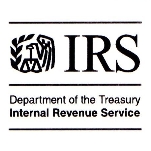Charged with collecting taxes and enforcing tax laws, the Internal Revenue Service is popularly dubbed the “most hated” agency in the U.S. federal pantheon. The agency determines, assesses and collects revenue, including from personal and corporate income taxes, excise, estate and gift taxes, as well as employment taxes for Social Security. The IRS is the largest bureau within the U.S. Department of Treasury - and according to the government, one of the world’s most efficient tax administrators: In 2004 the IRS collected more than $2 trillion in revenue and processed more than 224 million tax returns.
The Internal Revenue Service has its origins during the Civil War, when President Lincoln and Congress created the position of Commissioner of Internal Revenue and enacted an income tax to pay for the war in 1862. The tax was repealed ten years later, revived in 1894, and ruled unconstitutional by the Supreme Court the next year.
(Citizens for Responsibility and Ethics in Washington)
Audit reveals depth of Smithsonian-IRS scandal
(Washington Times)
1998 Restructuring
(Helium.com)
Remarks of IRS Commissioner Mark W. Everson at National Press Club
(News Release)
- Table of Contents
- Overview
- History
- What it Does
- Where Does the Money Go
- Controversies
- Suggested Reforms
- Comments
- Leave a comment

President Barack Obama has turned to a veteran executive to take over the Internal Revenue Service, which was rocked earlier this year by allegations—later shown to be false—that it had targeted politically conservative non-profit groups for extra scrutiny, and steer the agency to calmer waters. John A. Koskinen embarked on his second public service career in 1994, having spent two decades in the private sector. If confirmed by the Senate his term would last until November 2017, and he would replace Acting Commissioner Danny Werfel, who took the job in May after acting commissioner Steven T. Miller was forced to resign soon after the allegations surfaced.
Born July 30, 1939, Koskinen graduated Ashland High School in Ashland, Kentucky in 1957, going on to earn a B.A. in Physics at Duke University in 1961 and a law degree at Yale Law School in 1964. He also did post-graduate work in International Law at Cambridge University from 1964 to 1965. Koskinen clerked in 1965 and 1966 for Judge David Bazelon, who was one of the leading jurists of the day and served as chief judge of the U.S. Court of Appeals for the District of Columbia Circuit from 1962 to 1978.
After a short stint in 1966 and 1967 practicing law at the firm of Gibson, Dunn and Crutcher, Koskinen served in 1967 and 1968 as assistant to the deputy executive director of the Kerner Commission, which produced a landmark report on racism and the urban riots of 1967. He then served as a legislative assistant to Mayor John Lindsey of New York City (D), who had been vice chairman of the Kerner Commission, from 1968 to 1969. Koskinen got a taste of Capitol Hill from 1969 to 1973, serving as administrative assistant to Senator Abraham Ribicoff (D-Connecticut).
Leaving government service in 1973, Koskinen worked 21 years for the Palmieri Company, which specialized in “turnaround management” of foundering companies. Joining as vice president, he was named CEO and president in 1979. During this period, he also found time to serve as vice chairman of the American Professional Soccer League from 1987 to 1991.
Returning to public service after the 1992 elections, Koskinen served as deputy director for Management at the Office of Management and Budget from 1994 to 1997, and as assistant to President Bill Clinton and chair of the President’s Council on Year 2000 Conversion from 1998 to 2000.
From 2000 to 2003, Koskinen served as deputy mayor and city administrator of Washington, D.C., and from 2004 to 2008, he was president of the United States Soccer Foundation, which is the major charitable arm for soccer in the U.S.
In the wake of the collapse of the mortgage bubble and resulting crisis, Koskinen served as non-executive chairman of Freddie Mac from 2008 to 2011, including a stint as acting CEO in 2009.
Koskinen serves on the boards of AES Corp. and American Capital, Ltd.
A lifelong Democrat, Koskinen has donated more than $80,000 to Democratic candidates and organizations since 1990, including $7,300 to Barack Obama’s presidential campaigns, $18,000 to the Democratic National Committee, and numerous smaller donations to various candidates.
John Koskinen is married to Patricia Salz and has a daughter Cheryl and a son Jeffery.
-Matt Bewig
To Learn More:
Biography (Wikipedia)
Obama Chooses John Koskinen as Next U.S. IRS Commissioner (by Richard Rubin, Bloomberg)
John Koskinen Tapped for Worst Job in D.C. (by Lauren French, Politico)

The Internal Revenue Service (IRS)—reeling from criticism aimed at possibly inappropriate investigative tactics employed by agents reviewing applications for tax-exempt status from several “Tea Party” affiliated conservative groups—has a new acting director. Appointed by President Obama on May 16, Daniel R. Werfel has served as controller at the Office of Management and Budget (OMB) since July 2009. At IRS, he succeeds acting director Steven T. Miller, who resigned under pressure. Werfel took office on May 22, and his term will end at the close of the 2013 fiscal year on September 30.
Born circa 1971, Werfel earned a Bachelor’s Degree in Industrial and Labor Relations at Cornell University in 1993, and a joint Masters Degree in Public Policy at Duke University and JD at the University of North Carolina at Chapel Hill, both in 1997. Although he never played football at the college level, Werfel displays a photo in his office of former Florida quarterback and 1996 Heisman Trophy winner Danny Wuerffel in honor of the similarity of their names.
After law school, Werfel served at OMB as policy analyst in the Office of Information and Regulatory Affairs before serving briefly as a trial attorney in the Department of Justice Civil Rights Division. Dissatisfied with litigation work, Werfel returned to OMB in April 2002 to work as a budget examiner in the Education Branch until late 2003, as chief of the Financial Integrity and Analysis Branch from late 2003 to 2006, and as deputy controller from 2006 to July 2009.
As controller of OMB, Werfel was largely responsible for establishing Recovery.gov, a federal Web site that tracked how the 2009 economic stimulus program was distributing billions of dollars to jump-start the economy. Werfel also served as a member of the Federal Accounting Standards Advisory Board from 2006 to 2009.
Danny Werfel is married to Beth Werfel, with whom he has two children, Sean and Molly.
To Learn More:
Who is IRS Acting Commissioner Daniel Werfel? (by Ed O’Keefe and Josh Hicks, Washington Post)
Obama Names New Acting I.R.S. Chief (by Michael D. Shear, New York Times)
Alumnus Daniel Werfel to lead scandal-rocked IRS (by Mary Catt, Cornell Chronicle)
As OMB Controller, Alum Ensures Financial Transparency (Duke Alumni Profile)
- Latest News
- D.C. Public Schools will Teach all Second-Graders to Ride a Bike
- New Rule in Germany Limits Sales of Sex-Themed E-Books to 10pm to 6am
- What Happened to the 6-Year-Old Tibetan Boy the Chinese Government Kidnapped 20 Years Ago?
- U.S. Ambassador to Turkey Photoshops his Hair Color to Mock Turkish Mayor
- Mystery Artist Calls Attention to Unfixed Potholes by Drawing Penises around Them
Charged with collecting taxes and enforcing tax laws, the Internal Revenue Service is popularly dubbed the “most hated” agency in the U.S. federal pantheon. The agency determines, assesses and collects revenue, including from personal and corporate income taxes, excise, estate and gift taxes, as well as employment taxes for Social Security. The IRS is the largest bureau within the U.S. Department of Treasury - and according to the government, one of the world’s most efficient tax administrators: In 2004 the IRS collected more than $2 trillion in revenue and processed more than 224 million tax returns.
The Internal Revenue Service has its origins during the Civil War, when President Lincoln and Congress created the position of Commissioner of Internal Revenue and enacted an income tax to pay for the war in 1862. The tax was repealed ten years later, revived in 1894, and ruled unconstitutional by the Supreme Court the next year.
(Citizens for Responsibility and Ethics in Washington)
Audit reveals depth of Smithsonian-IRS scandal
(Washington Times)
1998 Restructuring
(Helium.com)
Remarks of IRS Commissioner Mark W. Everson at National Press Club
(News Release)
Comments

President Barack Obama has turned to a veteran executive to take over the Internal Revenue Service, which was rocked earlier this year by allegations—later shown to be false—that it had targeted politically conservative non-profit groups for extra scrutiny, and steer the agency to calmer waters. John A. Koskinen embarked on his second public service career in 1994, having spent two decades in the private sector. If confirmed by the Senate his term would last until November 2017, and he would replace Acting Commissioner Danny Werfel, who took the job in May after acting commissioner Steven T. Miller was forced to resign soon after the allegations surfaced.
Born July 30, 1939, Koskinen graduated Ashland High School in Ashland, Kentucky in 1957, going on to earn a B.A. in Physics at Duke University in 1961 and a law degree at Yale Law School in 1964. He also did post-graduate work in International Law at Cambridge University from 1964 to 1965. Koskinen clerked in 1965 and 1966 for Judge David Bazelon, who was one of the leading jurists of the day and served as chief judge of the U.S. Court of Appeals for the District of Columbia Circuit from 1962 to 1978.
After a short stint in 1966 and 1967 practicing law at the firm of Gibson, Dunn and Crutcher, Koskinen served in 1967 and 1968 as assistant to the deputy executive director of the Kerner Commission, which produced a landmark report on racism and the urban riots of 1967. He then served as a legislative assistant to Mayor John Lindsey of New York City (D), who had been vice chairman of the Kerner Commission, from 1968 to 1969. Koskinen got a taste of Capitol Hill from 1969 to 1973, serving as administrative assistant to Senator Abraham Ribicoff (D-Connecticut).
Leaving government service in 1973, Koskinen worked 21 years for the Palmieri Company, which specialized in “turnaround management” of foundering companies. Joining as vice president, he was named CEO and president in 1979. During this period, he also found time to serve as vice chairman of the American Professional Soccer League from 1987 to 1991.
Returning to public service after the 1992 elections, Koskinen served as deputy director for Management at the Office of Management and Budget from 1994 to 1997, and as assistant to President Bill Clinton and chair of the President’s Council on Year 2000 Conversion from 1998 to 2000.
From 2000 to 2003, Koskinen served as deputy mayor and city administrator of Washington, D.C., and from 2004 to 2008, he was president of the United States Soccer Foundation, which is the major charitable arm for soccer in the U.S.
In the wake of the collapse of the mortgage bubble and resulting crisis, Koskinen served as non-executive chairman of Freddie Mac from 2008 to 2011, including a stint as acting CEO in 2009.
Koskinen serves on the boards of AES Corp. and American Capital, Ltd.
A lifelong Democrat, Koskinen has donated more than $80,000 to Democratic candidates and organizations since 1990, including $7,300 to Barack Obama’s presidential campaigns, $18,000 to the Democratic National Committee, and numerous smaller donations to various candidates.
John Koskinen is married to Patricia Salz and has a daughter Cheryl and a son Jeffery.
-Matt Bewig
To Learn More:
Biography (Wikipedia)
Obama Chooses John Koskinen as Next U.S. IRS Commissioner (by Richard Rubin, Bloomberg)
John Koskinen Tapped for Worst Job in D.C. (by Lauren French, Politico)

The Internal Revenue Service (IRS)—reeling from criticism aimed at possibly inappropriate investigative tactics employed by agents reviewing applications for tax-exempt status from several “Tea Party” affiliated conservative groups—has a new acting director. Appointed by President Obama on May 16, Daniel R. Werfel has served as controller at the Office of Management and Budget (OMB) since July 2009. At IRS, he succeeds acting director Steven T. Miller, who resigned under pressure. Werfel took office on May 22, and his term will end at the close of the 2013 fiscal year on September 30.
Born circa 1971, Werfel earned a Bachelor’s Degree in Industrial and Labor Relations at Cornell University in 1993, and a joint Masters Degree in Public Policy at Duke University and JD at the University of North Carolina at Chapel Hill, both in 1997. Although he never played football at the college level, Werfel displays a photo in his office of former Florida quarterback and 1996 Heisman Trophy winner Danny Wuerffel in honor of the similarity of their names.
After law school, Werfel served at OMB as policy analyst in the Office of Information and Regulatory Affairs before serving briefly as a trial attorney in the Department of Justice Civil Rights Division. Dissatisfied with litigation work, Werfel returned to OMB in April 2002 to work as a budget examiner in the Education Branch until late 2003, as chief of the Financial Integrity and Analysis Branch from late 2003 to 2006, and as deputy controller from 2006 to July 2009.
As controller of OMB, Werfel was largely responsible for establishing Recovery.gov, a federal Web site that tracked how the 2009 economic stimulus program was distributing billions of dollars to jump-start the economy. Werfel also served as a member of the Federal Accounting Standards Advisory Board from 2006 to 2009.
Danny Werfel is married to Beth Werfel, with whom he has two children, Sean and Molly.
To Learn More:
Who is IRS Acting Commissioner Daniel Werfel? (by Ed O’Keefe and Josh Hicks, Washington Post)
Obama Names New Acting I.R.S. Chief (by Michael D. Shear, New York Times)
Alumnus Daniel Werfel to lead scandal-rocked IRS (by Mary Catt, Cornell Chronicle)
As OMB Controller, Alum Ensures Financial Transparency (Duke Alumni Profile)
- Latest News
- D.C. Public Schools will Teach all Second-Graders to Ride a Bike
- New Rule in Germany Limits Sales of Sex-Themed E-Books to 10pm to 6am
- What Happened to the 6-Year-Old Tibetan Boy the Chinese Government Kidnapped 20 Years Ago?
- U.S. Ambassador to Turkey Photoshops his Hair Color to Mock Turkish Mayor
- Mystery Artist Calls Attention to Unfixed Potholes by Drawing Penises around Them






Comments